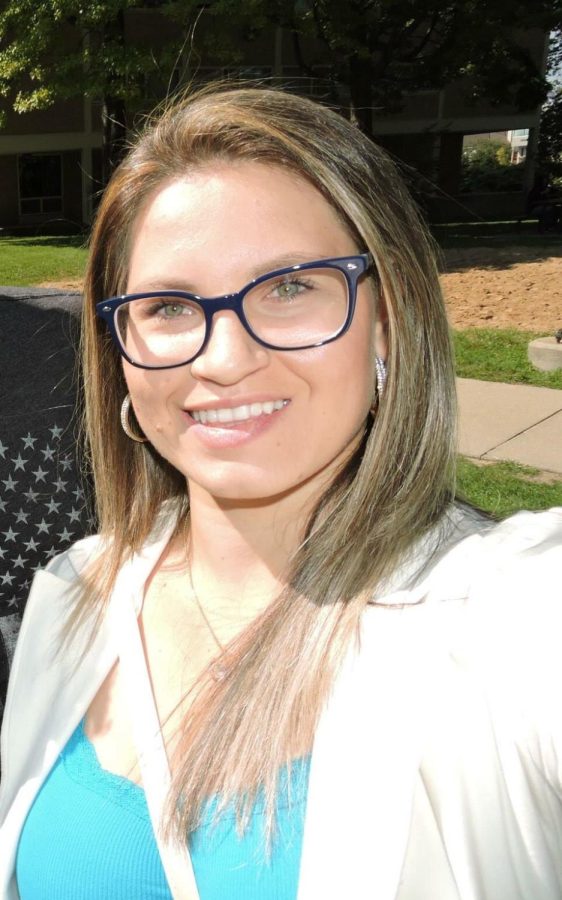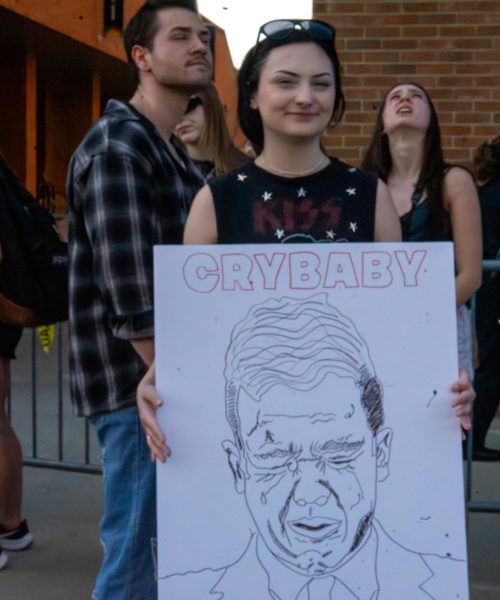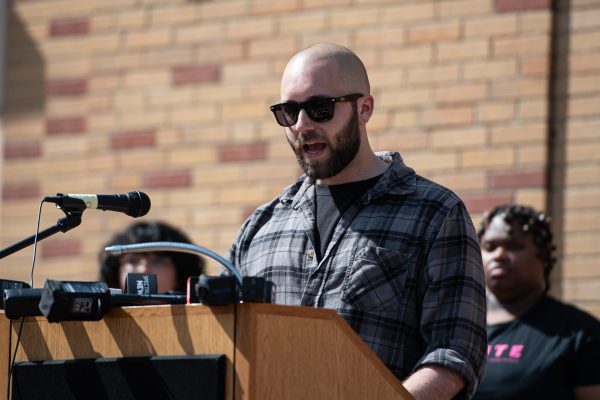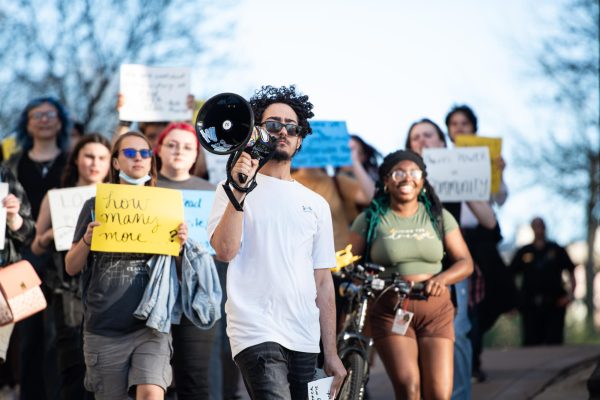Forbes under 30 scholar
Priscila Gemberling-Nicolotti at a get together at Case Western after her English as a Second Language finals in 2015. Courtesy of Priscila Gemberling-Nicolotti.
November 4, 2019
Priscila Gemberling-Nicolotti immigrated to the United States from Brazil five years ago without knowing any English. And now she has been named a Forbes Under 30 Scholar.
The Forbes Under 30 Scholar program focuses on diversity and inclusion and is only offered to 1,000 university students each year. The hope is that these selected students are the future of innovation.
Recipients of the scholarship get to attend the annual Forbes Under 30 Summit where they can network with “investors, entrepreneurs, celebrities, musicians, fashion designers, sports stars, cultural icons, world-renowned chefs, educators, political leaders and business icons who represent the entrepreneurial spirit of the Forbes 30 Under 30 list,” according to Forbes. This year’s summit was Oct. 27 – Oct. 30 in Detroit; however, because of work, Priscila was unable to attend.
Although she couldn’t make it to the summit, Priscila is looking forward to being able to apply for the Forbes 30 Under 30 award next year. She describes this as the next step as far as Forbes awards go, as it is a lot bigger than the scholar award. The 30 Under 30 recipients are 30 selected applicants from various fields from music to e-commerce who display some kind of unique innovation. She’s unsure of the specifics of the application, or what the outcome will be, but she’s excited to apply.
Priscila came to the U.S. for her education. She previously studied mechanical engineering in Brazil for three years, but decided it wasn’t for her. In Brazil, she had always studied English in school. She described this as similar to anyone else studying a language in school like Spanish or French; you usually don’t get a strong grip on it. It was her mother’s idea to send her to the U.S. to improve her English.
“We were seeing a big trend of job requirements for people speaking both languages in Brazil,” she said. “So my mom said, ‘go for six months, learn English and then come back.’”
When she arrived, she went to Case Western for their English program. While she was working on her English, Priscila decided not to talk to her mother in Brazil for a month. She says that even nowadays when she speaks with her mother in Portuguese her English seems to vanish.
Some say English is one of the hardest languages to learn, but Priscila disagrees. She feels English is very universal and visual. The fact that she was always seeing and hearing English everywhere around her made it easier to learn.
“It was hard, but I feel like it was easier for me compared to Portuguese,” she said. “My mom is trying to learn (English) now and it has been two years.”
After her initial six months in the states, she decided not to return to Brazil. She attended Tri-C and graduated with an associate’s degree in accounting and then transferred to Kent State.
“At the beginning it was hard. I didn’t have a Social Security number when I first came here so I couldn’t have a job,” she said. “It was a big struggle because I never really accepted my mom paying for things. I always wanted to be independent.”
Priscila is a senior computer information systems major, which she described as very demanding. Her major focuses a lot on management. There are several niches in the IT field; however, developing is what interests her the most. For example, right now she is working on a project that integrates developing with product management.
“I see a good demand for it because not a lot of managers know how to get their hands dirty,” she said. “I feel like computer information systems fills in that gray area.”
Priscila recalls people around her noticing whenever something seemed to be wrong in regards to their technology, like a flickering computer screen, she would somehow always know how to fix it.
“I didn’t know this was [what I wanted to study],” she said. “Everyone else around me knew that I liked the tech-y stuff, but I just didn’t believe it.”
Priscila now works at National Interstate Insurance Company. She started there in July 2018 as a data entry intern. Although she doesn’t have a lot of downtime between work and school, when she does have a second to relax, she likes to spend time with her Golden Retriever puppies.
The requirements for applying to the Forbes Under 30 scholar are pretty simple. Priscila expected to have to send in a portfolio of her work, but it wasn’t required. Applicants must be under 30, attending a university and be able to answer a couple essay questions on the application. However, the application isn’t easy to find. Apparently, you can only get access to it if someone forwards the link to you.
Priscila spends a lot of time on LinkedIn and started noticing a bunch of people she connected with liking posts from recipients of the Forbes award. So, she reached out to some of the people on LinkedIn to see if they could help her apply.
“One of them sent me the application and the other sent me the email of someone that was actually selecting the people,” she said. “I reached out to give them an FYI that I applied. It took about two weeks for them to get back to me.”
Since receiving the award, Priscila has been spending some time looking for bigger jobs to apply for in the future. She has been considering Google. On LinkedIn she has also noticed a lot of people that have received the Forbes award getting to be interns at big companies like Microsoft.
“It’s cliche, but I never really saw myself as being someone special,” she said. “And this [award] kind of gave me that sense. It’s kind of a boost because someone noticed how much I’ve been busting my ass.”
Contact Maria McGinnis at [email protected].
























